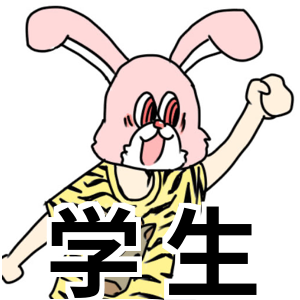
大きい古時計の歌っていいですよねぇ。The song “Grandfather’s Clock” is so nice, isn’t it?
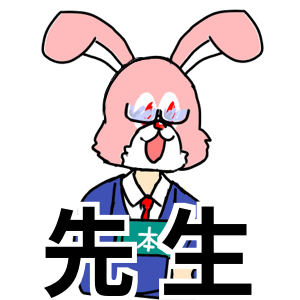
大きなノッポの古時計、おじいさんの時計~。“My grandfather’s clock was too tall for the shelf…”

そんなウサギくんに質問です。「大きい」と「大きな」…どちらの方がよりbigだと思いますか? Now, Rabbit-kun, let me ask you something. Between “ookii” and “ookina,” which one sounds bigger to you?

えっ、昔話とかにも出てくるし…「大きな」でしょうか…? Hmm, since “ookina” often appears in old tales… maybe “ookina”?

そうですか。私は「大きい」がまさにbigの形容詞ですから、「大きい」も良いと思います。I see. I think “ookii” also works, since it’s literally the adjective meaning “big.”

しかし、あなたの答えも間違いではありません。これは特に答えのない質問です。どちらがよりbigな印象を受けるかは、人によって違います。There’s no definite answer. Which one feels “bigger” depends on the person.

なんだ~…って、じゃあ「大きい」と「大きな」は意味に違いがないってことですか? Oh, so “ookii” and “ookina” basically mean the same thing?

今日は「大きい・大きな」「小さい・小さな」の違いや品詞名を見ていきましょう。Today, let’s look at the difference and parts of speech for “ookii/ookina” and “chiisai/chiisana.”
「大きい」と「大きな」の違いと品詞名
「大きい」と「大きな」の違いは何でしょうか。まずは、2つの意味・品詞名を確認しておきましょう。また、使い方を見ていきましょう。What’s the difference between “ookii” and “ookina”? Let’s first check their meanings and parts of speech, and then look at how they’re used.
「大きい」の品詞・使い分け・例文
- 一般的に大きいもの、想像したもの、思い出したものにも使う。Used for things that are generally big, or for things imagined or remembered.
- 「大きな」よりよく使われる。It’s used more often than ookina.
- 品詞:形容詞(イ形容詞)i-adjective
- 使い方:(活用しない場合)名詞の前、または文尾にくる。(When not conjugated) placed before a noun or at the end of a sentence.
「大きい犬だったね。」It was a big dog.
「校庭の大きい木の下にいるよ。」I’m under the big tree in the schoolyard.
「大きいゾウは、小さいネズミに言いました。」The big elephant said to the small mouse.
「この犬は大きい。」This dog is big.
「校庭の木は大きい。」The tree in the schoolyard is big.
「ゾウは大きい。」The elephant is big.”

形容詞ですから、過去形などで形が変わります。活用する場合、動詞を修飾することもあります。Since it’s an adjective, its form changes for tense, and it can also modify verbs.
「大きくなったね!」You’ve grown big!
「大きく動き出した。」It started moving in a big way.
「今日見た犬は大きかった。」The dog I saw today was big.
「大きくて、こわい犬だった。」It was a big, scary dog.
「どんなに大きくても、恵方巻きはこうやって食べるんだ。」No matter how big it is, you eat an *ehōmaki* like this.
「小型犬にしては大きすぎる。」It’s too big for a small dog.”
「大きな」の品詞・使い分け・例文
- 思い出して「大きかったなぁ」という印象の時使う。Used when recalling something with the feeling of “It was so big…”.
- 歌や物語などでよく使われる。Often appears in songs and stories.
- 品詞:連体詞 ※形容動詞(な形容詞)とする場合もある。adnominal(sometimes treated as a na-adjective.)
- 使い方:必ず名詞の前にくる。Always placed before a noun.
「大きな犬だったね。」It was a big dog.
「校庭の大きな木の下にいたよ。」I was under the big tree in the schoolyard.
「大きな大きな桃が川を流れてきました。」A big, big peach came floating down the river.
「大きなゾウは、小さなネズミに言いました。」The big elephant said to the small mouse.
「大きな物語の消失は、宗教的な論争を生んでいる。」The disappearance of grand narratives has led to religious disputes.
「大きな嘘とは、政治的なプロパガンダ手法として使用される虚偽表現のことだ。」A big lie refers to false statements used as a political propaganda technique.
「大きい」と「大きな」の違いと例文
「大きい」と「大きな」には、意味的な違いはないといえます。ただし、聞く人によって、受ける印象が違います。ここで、冒頭の例の『大きな古時計』の歌を見ていきましょう。There’s no real difference in meaning between “ookii” and “ookina”, but they give slightly different impressions depending on the listener. Let’s look at the song *Ōkina Furutokei* (“Grandfather’s Clock”).
「大きいノッポの古時計」
感じ方は人それぞれですが、【大きな】古時計の方が、より懐古的(懐かしい感じ)だという人は多いのではないでしょうか。“A tall, big grandfather clock.” People often feel that “ōkina” sounds more nostalgic or sentimental, influenced by the song itself.

歌の内容にひっぱられた印象ですね。以下はどうでしょうか。The impression here is influenced by the song’s story, isn’t it? How about the next example?
「大きい大きいカブが抜けました。」
これは、『大きなカブ』という物語の一説です。この話を知っている人なら、【大きな】の方がより大きいような印象を受けるかもしれません。「大きい」と「大きな」の違いは、その人がこれまでどんな文章を読んだかで変わります。それは、「大きな」が、歌や物語でよく使われるためでしょう。“The big, big turnip was pulled out”. This line is from *The Gigantic Turnip.* For those familiar with the story, “ōkina” may sound even bigger.

歌や物語を知っているかどうかで「大きな」の印象が決まりそうです。では「小さな」の印象は違いますか?The difference in impression depends on what texts or stories someone has read, since “ōkina” often appears in songs and tales. So, does “chiisana” give a different kind of impression too?
「小さい」と「小さな」の違いと品詞名
「大きい」と「大きな」の違いが品詞の違いであるのと同じく、「小さい」と「小さな」も形容詞か連体詞かの違いです。「大きい」と「大きな」と同じく、受ける印象は人によって違います。Just as the difference between “ookii” and “ookina” lies in their parts of speech, the same applies to “chiisai” and “chiisana”: one is an adjective, and the other is a “rentaishi” (adnominal). As with “ookii” and “ookina”, the impression they give varies from person to person. ” “A little kitten is sleeping on the chair.
「小さい子猫がイスの上で寝ている。」
「小さな子猫がイスの上で寝ている。」A small kitten is sleeping on the chair.
「なんとも小さい人がこちらを見上げている。」(一寸法師)
「なんとも小さな人がこちらを見上げている。」(一寸法師)I saw a tiny person gazing up at me.” (*Issun-bōshi*)

「これが正解!」というものはありません。周りの人にどんな印象を持つか聞いてみるのも楽しそうですね。There’s no single “correct” answer. It might be fun to ask people around you what kind of impression each gives them.
連体詞とは?「大きな・小さな」の仲間
きれいな、清らかな、元気な、大ざっぱな
グループ②
大きな、小さな、おかしな、いろんな
グループ①と②の違いが分かりますか?グループ①は、形容動詞(な形容詞)「~だ」が変化した形です。Do you know the difference between the two groups? Group ① consists of na-adjectives, which come from words that can take “~da.”

「大きい」は、形容詞(い形容詞)です。Ōkii, on the other hand, is an i-adjective.
グループ②は、連体詞。では、連体詞とは何なんでしょうか? ② consists of rentaishi (adnominals). So, what exactly is a rentaishi?
活用ができない自立した言葉。An independent word that does not conjugate.
「ある」「その」「いわゆる」「同じ」など。

ただし、「大きな」を連体詞とする辞書と、形容動詞とする辞書があります。 However, some dictionaries classify ōkina as a rentaishi, while others treat it as a na-adjective.

ええーー!?結局「大きな」も形容詞に分類されることもあるってことじゃないですか! What!? So ōkina can also be considered an adjective?

日本語というのは、あいまいなんですよ。Yes—Japanese can be a bit ambiguous that way.

ちなみに「元気」も、「元気」という名詞でもあり、「元気だ」という形容動詞(な形容詞)でもあります。By the way, genki can function both as a noun (“health, energy”) and as a na-adjective (“genki da,” meaning “is healthy/energetic”).

ひえ~!ややこしい!!覚えられませんよ! Wow, that’s confusing! I’ll never remember all that!

これらの品詞の細かい違いは覚えなくてもいいですよ。ただひとつ注意したいことがあります。以下にまとめました。That’s okay—you don’t need to memorize every grammatical distinction. Just keep one important point in mind, which we’ll summarize below.
「大きな・小さな」のよくある間違い
「大きな」は「な」が付くから形容動詞(な形容詞)!元の形は「大きだ」だ!これは間違いですね。「大きい」は、たまたま「大きな」という別の言い方を持つ言葉です。「小さな」も同様に、元の形が「小さだ」というのは間違い。それぞれ「大きな・小さな」という言葉があると覚えましょう。It’s a mistake to think that “ōkina” is a *na*-adjective just because it has “na,” or that its base form is “ōkida.” “Ōkii” simply happens to have another form, “ōkina.” The same goes for “chiisana”—its base form is not *chiisada.* Just remember that “ōkina” and “chiisana” each exist as their own words.
まとめ
- 「大きい・小さい」と「大きな・小さな」の違い
「大きい・小さい」の品詞は、形容詞(い形容詞)
「大きな・小さな」の品詞は、連体詞
受ける印象は人それぞれだが、意味の違いはない
- 「大きな・小さな」のよくある間違い
「な」で終わる?→形容動詞(な形容詞)?→元の形は「大きだ」?
次回記事:い形容詞・な形容詞の違いとは?
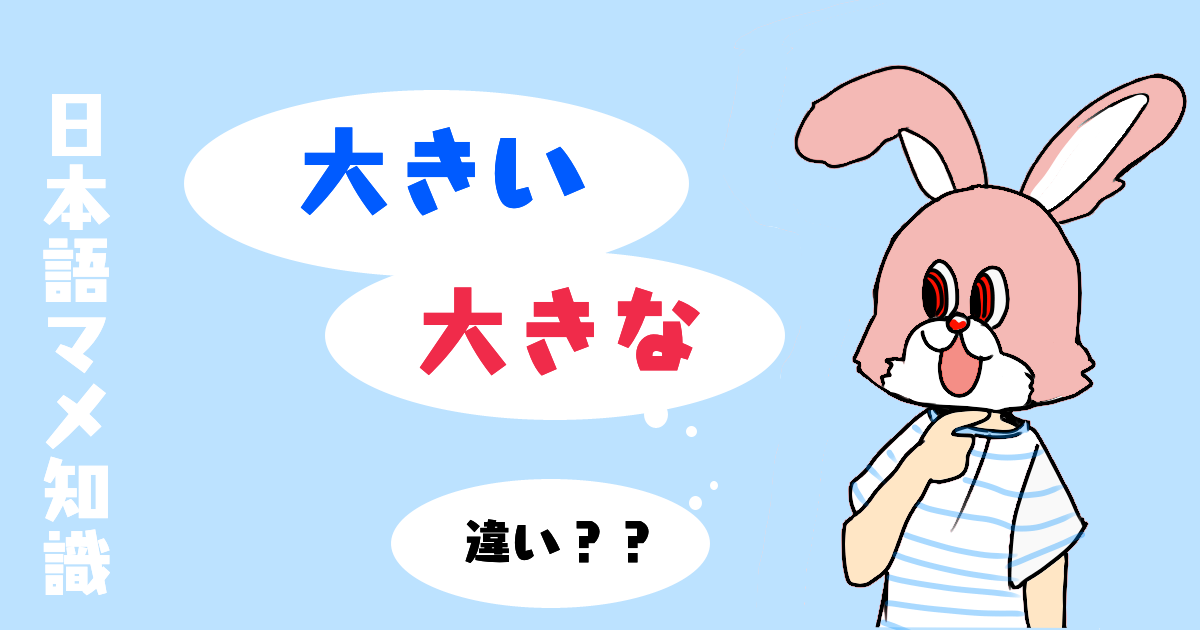

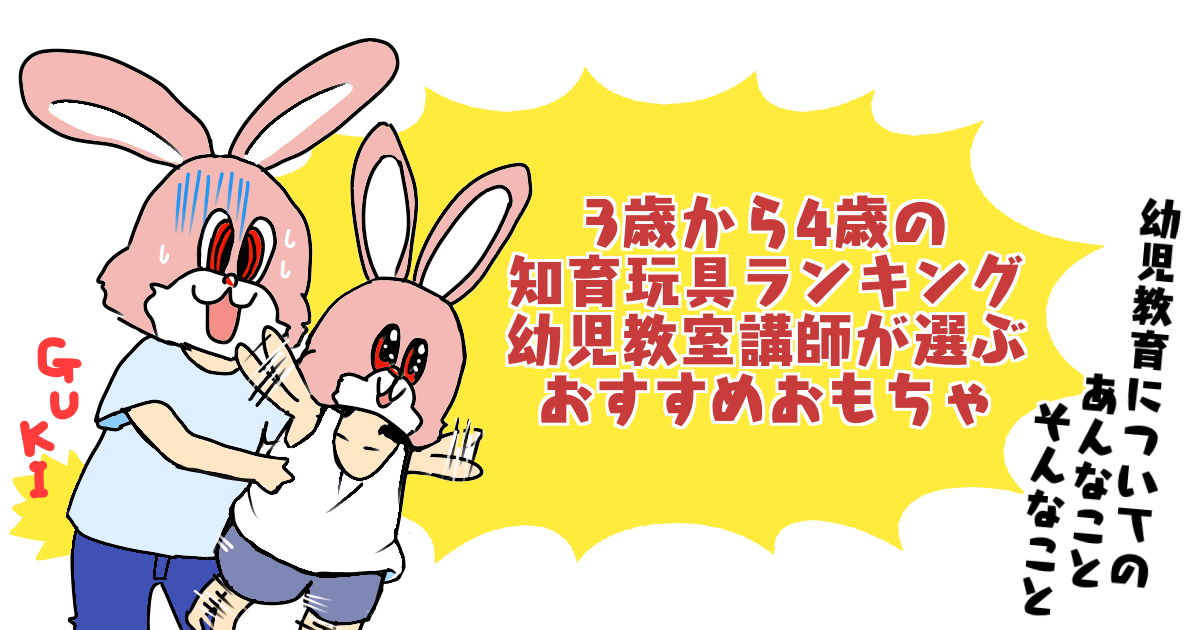
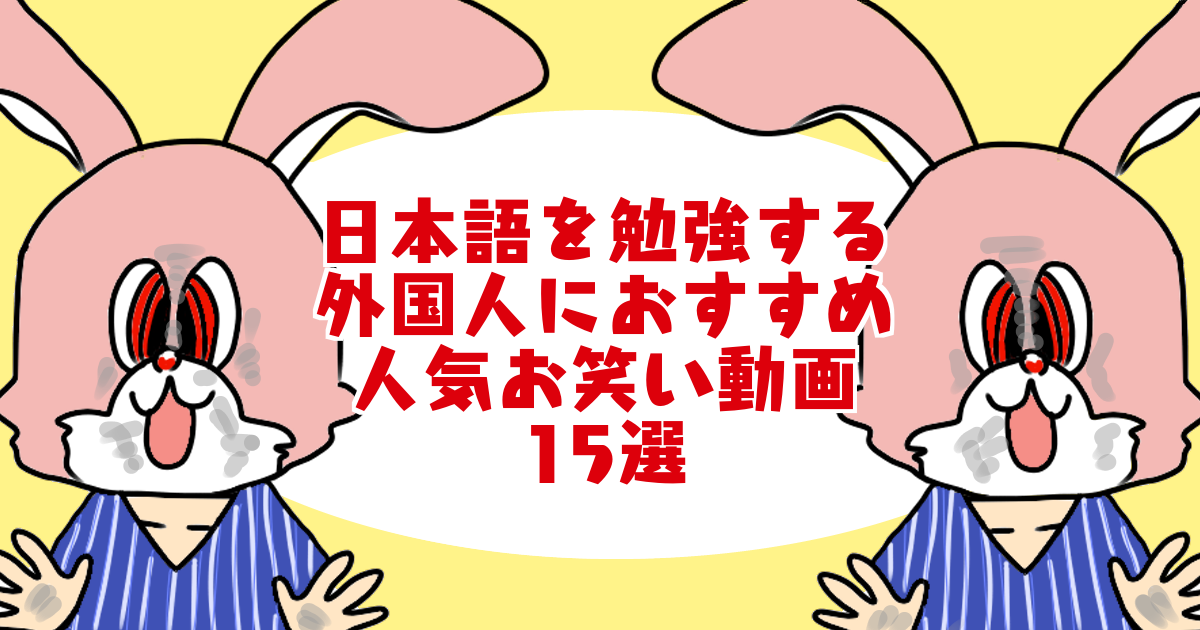
コメント